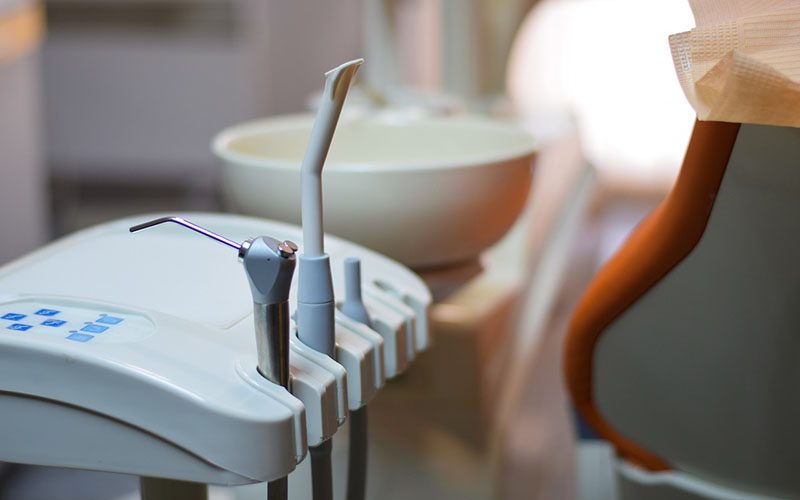We’ve seen the face many times. The sheer panic many patients have when they hear that they need their wisdom teeth removed. The thought often causes some anxiety. Many patients will tell us that the wisdom teeth aren’t bothering them or hurting them in any way, so they can probably stay put. Wrong. Just because they aren’t bothering you now does not mean there isn’t a problem.
Even if there is no current pain, your wisdom teeth could be stuck or impacted, meaning they are unable to break through your jaw and grow in properly. Your mouth might be too small to make room for them, or the wisdom teeth could be growing in at a problematic angle, possibly damaging surrounding teeth.

(ExplorerBob / pixabay)
Waiting too long to remove the wisdom teeth can cause many problems that result in intense pain.
What are Wisdom Teeth?
Your back molars, often called wisdom teeth, are your final adult teeth to grow in your mouth. They come in on the top and bottom of both sides, somewhere between the ages of 17 and 21, although in rare cases, they come in earlier and in sporadic cases, they come in later. Most mouths aren’t designed to house wisdom teeth for good, so their appearance causes problems.
When is it Time to Get Them Removed?
When wisdom teeth begin to cause problems or an X-ray shows they may cause problems down the road, it’s time to get them out! It is also time to get them out if:
● They are Hurting your Other Teeth
This is often the concern about wisdom teeth. As the wisdom teeth grow in, they can push your other teeth, causing severe pain and bite problems.
● They are Causing Sinus Issues
The appearance of wisdom teeth could potentially cause sinus pain, painful pressure and congestion. Yikes!
● They are Jeopardizing Your Jaw
Incoming wisdom teeth may cause cysts to form around your teeth. Without treatment, nerve damage might occur in the jaw.
● They are Hurting Your Gums
Tissue around the wisdom teeth could result in swelling. Swelling can make it very hard and painful to clean the teeth.
● They are Causing Cavities
Swollen gums can lead to pockets between the teeth that allow cavity-causing bacteria to grow and spread.
● They are Causing Misalignment
Incoming wisdom teeth can cause overcrowding in your mouth, resulting in crooked, misaligned teeth.
About 85 percent of people will need to get their wisdom teeth extracted at some point in their lifetime. Recovery is generally easier at a younger age, so it is recommended not to wait until they are causing a plethora of problems to get them removed. If your dentist highly recommends wisdom teeth removal, then it is in your best interest to listen. We know getting wisdom teeth extracted may seem frightening and the idea of possibly being put under adds even more stress, but the whole experience usually isn’t as bad as people think it’s going to be.
What to Except from Recovery
Depending on your specific circumstance, recovery from wisdom teeth surgery can take up to a week. Recovery may take longer if your wisdom teeth are impacted, meaning they haven’t emerged from below the gums yet and are not visible, or if you get a dry socket or infection after surgery. Impacted wisdom teeth take a little extra work to get out and your dentist may recommend putting you under local anesthesia or sedation to make the process smoother and less scary for you.
Some pain and swelling following your surgery are entirely normal and expected. The first couple of days of recovery will also include some blood. An ice pack will be your best friend to alleviate some pain and keep that swelling to a minimum. You will most likely be given prescription painkillers or over-the-counter pain meds to help ease the pain.
Make sure to have your fridge stocked with lots of Jello and other very soft foods because that is all you should eat after your surgery. Stay away from alcohol, caffeine and smoking. We also recommend avoiding straws at all costs as they can lead to a dry socket, a painful dental condition that sometimes happens after tooth extraction. A dry socket usually occurs when the blood clot over the wound is dislodged. The blood clot could be dislodged from:
- Spitting
- Drinking from a Straw
- Strenuous Exercise
- Smoking
Your pain should be significantly reduced by the third day of your recovery and if it’s not then there may be a problem. All pain and swelling should be gone within a week after your surgery. Is it fun getting your wisdom teeth pulled? No. But it is a lot less severe than what could happen if you ignore them. Be wise and give your Weber County dentist a call to see if it’s time to get your wisdom teeth out. We promise you won’t lose your wisdom, just your pesky back molars.
